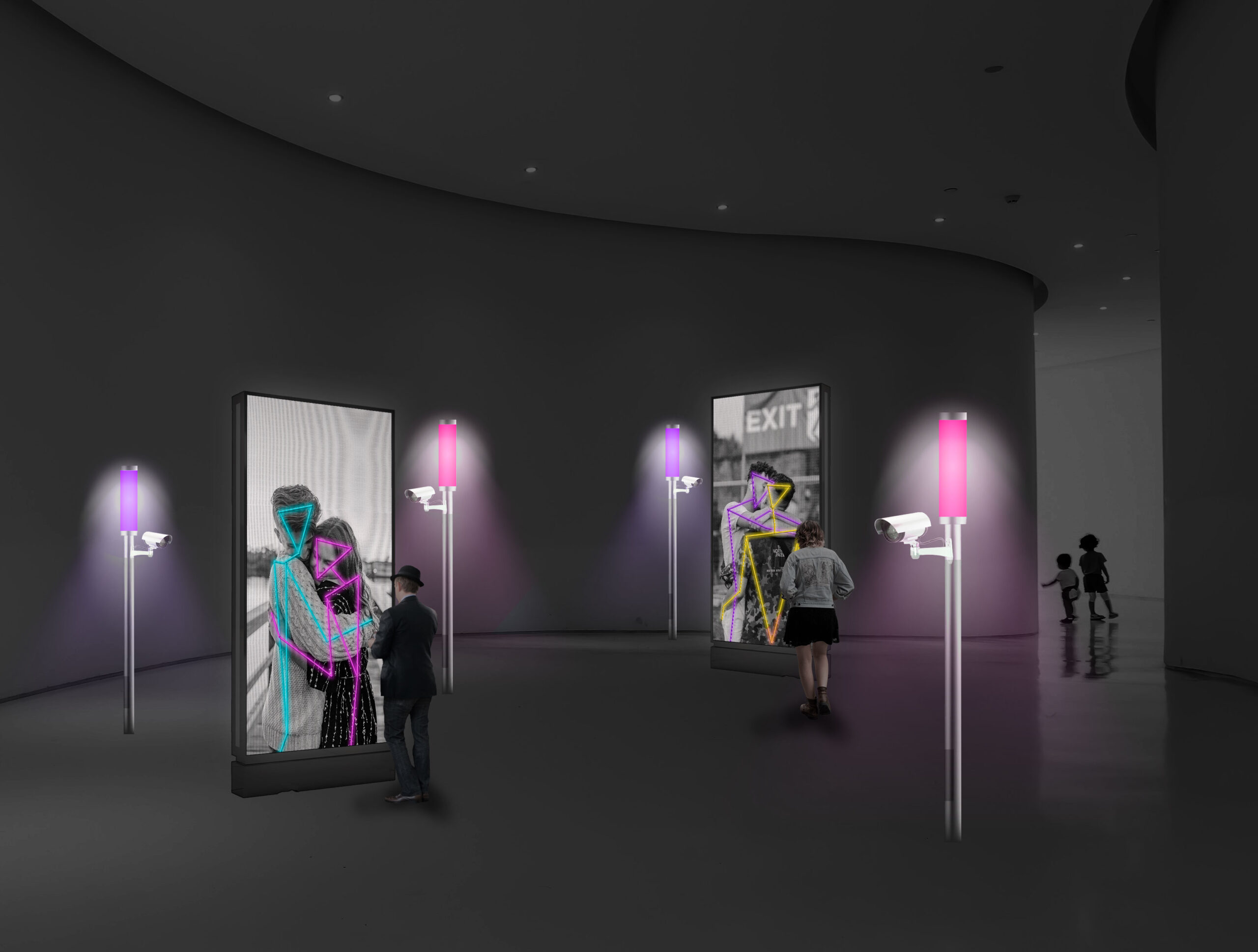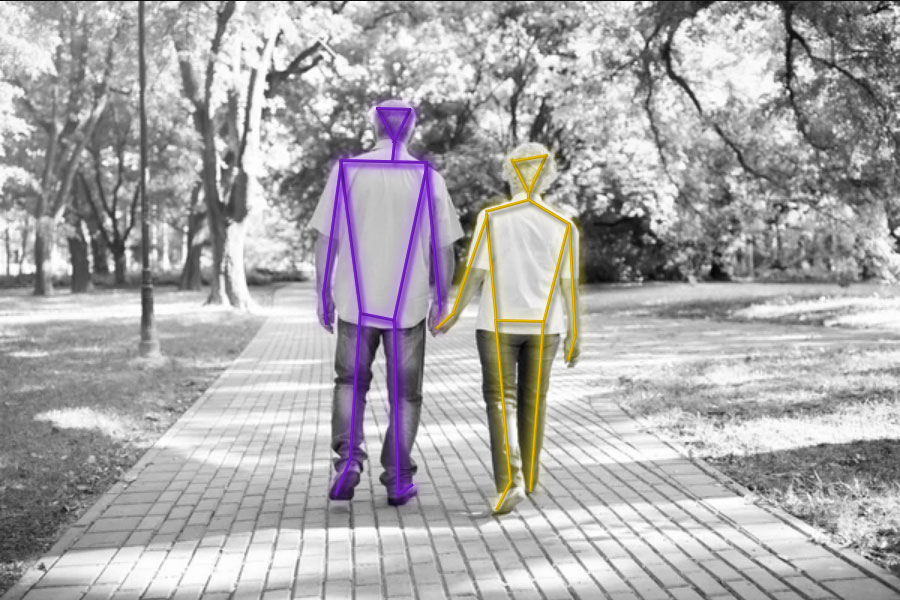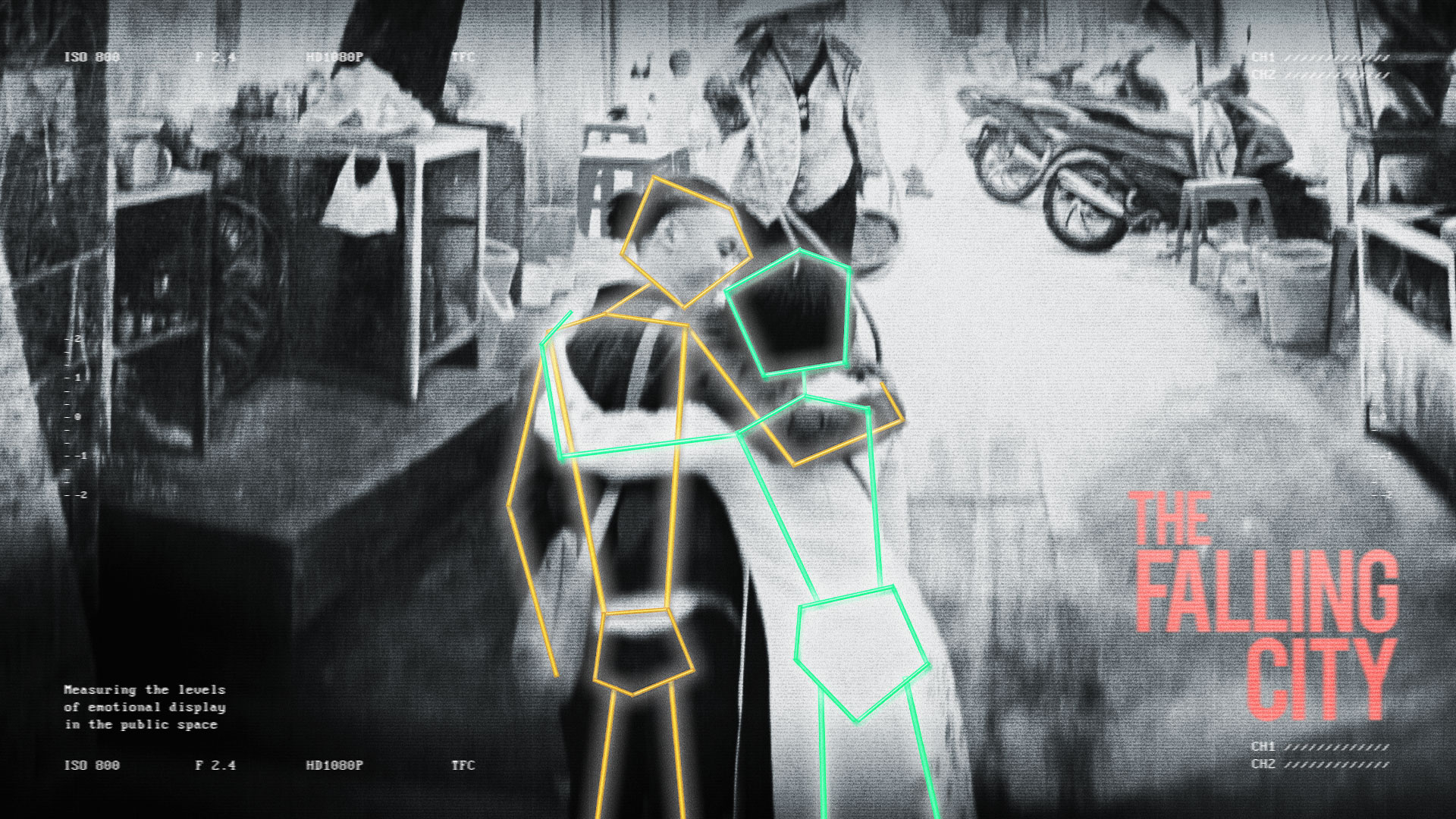The streets of the cities reveal and reflect the values of the society that inhabits them.
There seems to be a need for technologies that would measure the levels of safety within, such as the recognition of violent areas or the identification of pavements in poor conditions where the most vulnerable people tend to fall. But there is also a fall, in falling in love. Emotions are fundamental elements in the construction of public space, and, while there is a wide range of advanced technologies focussed on registering the negative scenes of people’s actions to guarantee safety, still, there is no system trained to recognise the positive.
The Falling City approach to this subject involves training an AI system into emotional recognition by measuring the levels of affective display in the public space to see how the emotions can be affected by the structures of urban environments, moving towards an intimate, localised, and relational perspective on the use of surveillance cameras.
The goal of the project is to map the city in terms of emotionality and to stimulate the debate on the desirability and value of surveillance systems in the cities to better understand the emotions of people living in it.
Artificial Empathy states as the main focus an enquiry on the desirability and value of tools of control in the city of Brussels, raising up questions about the ethical implications of AI surveillance systems.
The Falling City proposal is based on answering these questions through the development of a thought provoking art project that will hack an A.I. surveillance system to do the opposite of what they are usually made for; namely the generation of information based on the positive intimate relationships that occur on the streets of Brussels.
There is nothing more human than the ability to feel. Emotions are a common good beyond race, gender or borders. Emotions are what makes us vulnerable, what makes us doubt, what makes us be…
Emotions belong to us, and this can not be replaced by a system that is unable to feel.
However, what the system might be able to do is provide us with some tools that can help us reconnect with our capacity of affective display in the public space. Something that is being progressively diluted due to our fast moving life style and the architectural gear in the city.
Hence, it is necessary to prototype a technology that would potentially be able to map the city based on levels of emotional expression, providing citizens with information that might help them connect with their emotional side to offer an alternative view/read/experience of the city and to better understand how emotions can be affected by the characteristics and structures of the urban environments.
Noemi Iglesias Barrios
Jury Statement
Radix is thrilled to embark on ‘The Falling City’ project alongside the artist Noemi Iglesias, Gluon, the League for Human Rights, and the Knowledge Centre for Data and Society. We strongly believe in AI’s potential to improve society and are committed to initiatives that stimulate informed debates on its ethical use. We therefore find it enriching to work with an artist to explore the critical balance between the benefits and risks of AI within our communities.
Raphaël Peschi (AI Solution Lead, Radix)

Noemi Iglesias Barrios (SP)
Noemi Iglesias Barrios is a multidisciplinary artist working with porcelain and long-durational performative formats. Her practice is concerned with the role of visual arts at the intersections of traditional sculptures and digital technologies to report how emotional experiences, such as falling in love, are influenced by consumerist strategies.





